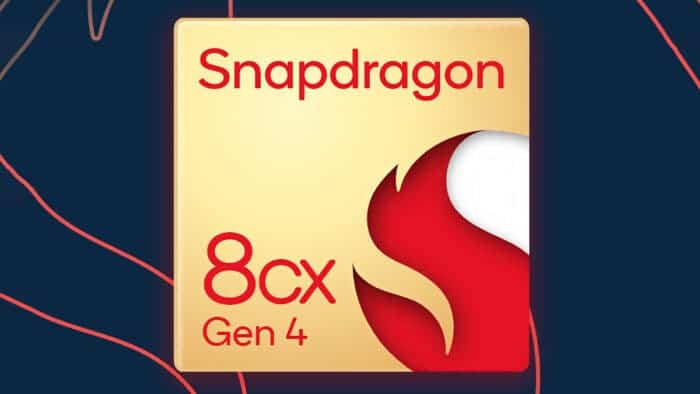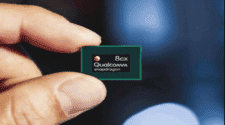Qualcomm, the tech giant, is reportedly facing issues with its much-anticipated Snapdragon 8cx Gen 4. This SoC, which will be the first to feature custom Oryon cores resulting from the Nuvia acquisition, has been under scrutiny. While some progress has been made in terms of performance, experts in the tech world suggest that it might only slightly outshine Apple’s M2 but not the new M3 chip.
Qualcomm Snapdragon 8cx Gen 4’s performance compared to Apple’s M2 and M3 rivals

Apple, always a fierce competitor, will introduce the M3 before Qualcomm’s Snapdragon 8cx Gen 4 sees the light of day. This potential delay could once again place Qualcomm in the shadows of its rival.
A recent report from SemiAccurate experts sheds some light on Qualcomm’s Oryon SoC. It has been referred to as the Snapdragon 8cx Gen 4 in previous discussions. According to Charlie Demerjian, the Oryon cores seem to have met their performance and power targets and will surpass the capabilities of the M2, which currently powers a range of portable Macs and Apple’s latest iPad Pro models.
However, the report doesn’t specify which variant of the Snapdragon 8cx Gen 4 outperforms the M2. Also, this chipset comes in three versions, each with varying core counts and features. The top-tier variant boasts a 12-core CPU, divided into eight high-performance cores and four designed for power efficiency. It’s possible that this version could surpass the M2 in performance. It’s worth noting that the M2 is an 8-core SoC, with four high-performance and four power-efficient cores. At the very least, many expected the Snapdragon 8cx Gen 4 to match the multi-core capabilities of the M2 Pro.
Here are some more details about the Snapdragon 8cx Gen 4:
- It’s 30% faster than the Snapdragon 8cx Gen 3.
- It has a 20% improvement in power efficiency.
- It supports LPDDR5X memory.
- It has a new image signal processor (ISP) that can handle 240fps video recording.
- It has a new security processor that can protect against hardware-level attacks.
Here are some of the key differences between the Snapdragon 8cx Gen 4 and the Apple M3:
- The 8cx Gen 4 has a 12-core CPU, while the Apple M3 has an 8-core CPU.
- The 8cx Gen 4 is using TSMC’s 4nm process, while the Apple M3 is using TSMC’s 3nm process.
- The 8cx Gen 4 supports Wi-Fi 7 and 5G, while the Apple M3 only supports Wi-Fi 6.
- The 8cx Gen 4 can accommodate desktop graphics cards through a Thunderbolt connection and eGPU enclosure, while the Apple M3 cannot.
| Feature | Snapdragon 8cx Gen 4 | Apple M2 | Apple M3 |
|---|---|---|---|
| Manufacturing process | TSMC 4nm | TSMC 3nm | TSMC 3nm |
| CPU | 12 cores (4 performance + 8 efficiency) | 8 cores (4 performance + 4 efficiency) | 8 cores (4 performance + 4 efficiency) |
| GPU | Adreno 730 | M2 GPU | M3 GPU |
| Memory | LPDDR5-5200 | LPDDR5-5500 | LPDDR5-5500 |
| Storage | PCIe 4.0 NVMe | PCIe 4.0 NVMe | PCIe 4.0 NVMe |
| Connectivity | Wi-Fi 7, 5G | Wi-Fi 6, 5G | Wi-Fi 6, 5G |
Despite this potential performance advantage, there’s a significant hurdle for Qualcomm. The Snapdragon 8cx Gen 4 might launch after Apple unveils the highly anticipated M3, which will happen in just a few months. So, tech enthusiasts and consumers eagerly await more competition in the ARM notebook market, currently dominated by Apple.
Gizchina News of the week
In the race for supremacy, Qualcomm’s Snapdragon 8cx Gen 4 faces a critical juncture. While it exhibits promising performance capabilities, the timing of its launch could tip the scales in Apple’s favor. So, with the M3 on the horizon and Qualcomm’s uncertainties regarding release dates, the tech world watches closely, hoping for a revitalized rivalry in the ARM notebook market.
Overall, Qualcomm’s 8cx Gen 4, with its custom Oryon cores, appears to have the potential to outperform Apple’s M2. However, the real challenge lies in Qualcomm’s ability to bring it to market before Apple unveils the M3. The forthcoming Snapdragon Summit holds the key to Qualcomm’s strategy, and tech enthusiasts eagerly anticipate the resurgence of competition in the ARM notebook arena.

Analysis on Qualcomm and Apple’s battle for the future of laptop chips
The competition between Qualcomm and Apple in the laptop chip market is heating up. Qualcomm is betting big on its Snapdragon 8cx Gen 4 chip, which is said to be more powerful and power efficient than the Apple M2. Qualcomm is also targeting a lower price point for its chips, which could make them more attractive to budget-conscious buyers.
Apple, on the other hand, is not sitting still. The company is reportedly working on even more powerful chips for its laptops, including the M3 and M4. Apple is also rumored to be developing its own modem chips, which would give it more control over the performance and features of its laptops.
It is still too early to say who will win the battle for the laptop chip market. However, the competition is sure to drive innovation and give consumers more choices.
Here are some of the factors that could shape the future of laptop chips:
- The continued development of ARM architecture. ARM chips are becoming increasingly popular in laptops due to their power efficiency.
- The increasing demand for 5G connectivity in laptops. 5G will allow laptops to download and stream content faster, and it will also be essential for remote work and gaming.
- The rising popularity of foldable laptops. Foldable laptops offer the best of both worlds, combining the portability of a tablet with the power of a laptop.
The laptop chip market is poised for growth in the coming years. The competition between Qualcomm and Apple will be fierce, but it will ultimately benefit consumers.
Here are some other aspects of the topic beyond just performance comparisons that are worth considering when choosing a laptop chip:
- User experience: The user experience of a laptop is not just determined by the chip, but also by the software, drivers, and other factors. It is important to consider how well the chip will work with the software you use and whether it will provide a smooth and responsive experience.
- Real-world benchmarks: Benchmarks can be helpful in comparing the performance of different chips, but they should not be the only factor considered. Real-world benchmarks can give you a better idea of how the chip will perform in everyday tasks.
- Software compatibility: It is important to make sure that the chip you choose is compatible with the software you want to use. Some software may not be compatible with certain chips, so it is important to do your research before making a purchase.
- Battery life: Battery life is an important consideration for any laptop, but it is especially important for laptops with ARM chips. ARM chips are generally more power efficient than x86 chips, but they can still drain the battery quickly if they are not used properly.
- Upgradability: If you plan on using your laptop for a long time, it is important to consider whether the chip is upgradable. Some laptops allow you to upgrade the chip, while others do not.
Ultimately, the best way to choose a laptop chip is to consider your needs and budget. If you are looking for a powerful and versatile chip that offers long battery life, the Snapdragon 8cx Gen 4 is a good option. If you are looking for the best possible performance, the Apple M3 is a better choice. However, the Apple M3 is also more expensive and may not be compatible with all software.
It is also important to keep in mind that the laptop chip market is constantly evolving. New chips are being released all the time, so it is important to do your research before making a purchase.




